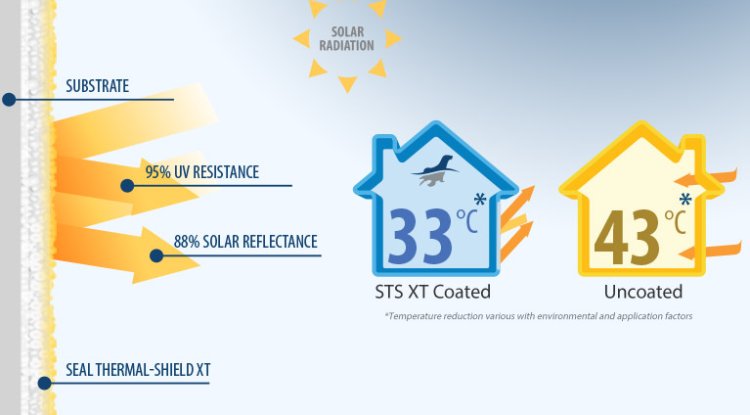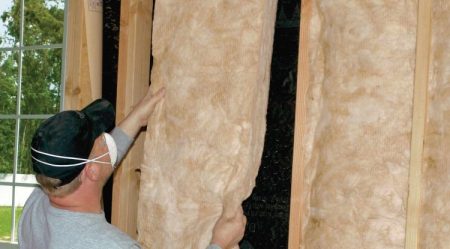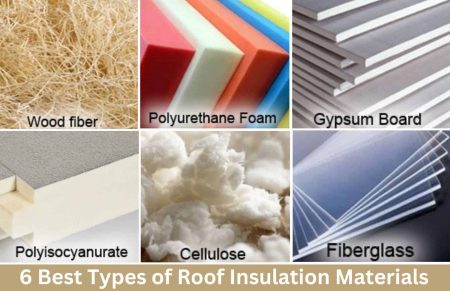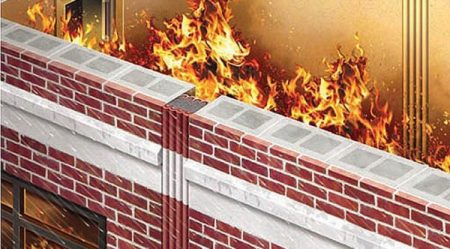Benefits of exterior insulation
Benefits of Exterior Insulation
Exterior insulation is becoming increasingly popular in the construction industry due to its numerous benefits. In this article, we’ll explore why exterior insulation is a smart choice for building owners and contractors alike.
What is Exterior Insulation?
Before getting into the benefits of exterior insulation, it’s important to understand what it is. Exterior insulation involves adding insulation to the exterior walls of a building, rather than the interior. This can be done through a variety of systems, such as EIFS (Exterior Insulation and Finish System) or insulated concrete forms.
Improves Energy Efficiency
One of the primary benefits of exterior insulation is that it significantly improves a building’s energy efficiency. By keeping heat inside during the winter months, and outside during the summer, exterior insulation helps reduce energy costs and improve comfort levels for occupants.
Lower Energy Bills
With less heat escaping through the walls, buildings with exterior insulation can expect to see significant savings on their energy bills. This makes it a wise investment for building owners looking to save money in the long run.
Reduced Carbon Footprint
Reducing energy consumption not only saves money, but also reduces a building’s carbon footprint. By using less energy, buildings with exterior insulation help reduce greenhouse gas emissions and contribute to a more sustainable future.
Enhances Durability
Another major benefit of exterior insulation is that it enhances the durability of a building. This is because it helps prevent moisture from seeping into the walls, which can cause damage over time.
Protection Against Moisture
Moisture is one of the biggest enemies of any building, as it can cause mold growth, rotting, and other types of damage. Exterior insulation acts as a barrier against moisture, helping to keep buildings dry and free from damage.
Improved Air Quality
By preventing moisture from seeping into the walls, exterior insulation also helps improve indoor air quality. This is because mold and other types of fungi thrive in damp environments, and can negatively impact the health of building occupants.
Increases Property Value
While the upfront cost of exterior insulation may be higher than traditional insulation methods, it’s important to consider the long-term benefits. One of these is that it can increase the value of a property.
Attractive Appearance
Exterior insulation systems like EIFS can be designed to mimic the appearance of traditional stucco or brick, adding curb appeal to a property. This can make it more attractive to potential buyers, and increase the property’s overall value.
Better Building Performance
Because exterior insulation improves energy efficiency, durability, and indoor air quality, buildings with this feature are generally more desirable to buyers. As a result, they may command a higher selling price than comparable properties without exterior insulation.
Conclusion
In conclusion, exterior insulation offers numerous benefits to building owners, contractors, and occupants alike. From improving energy efficiency and durability, to increasing property value, it’s clear that this innovative insulation method is worth considering for any new construction or renovation project.
FAQs
What is exterior insulation?
Exterior insulation involves adding insulation to the outside walls of a building, rather than the inside.
How does exterior insulation improve energy efficiency?
By keeping heat inside during the winter months, and outside during the summer, exterior insulation helps reduce energy costs and improve comfort levels for occupants.
How does exterior insulation enhance durability?
Exterior insulation acts as a barrier against moisture, helping to prevent damage caused by mold growth, rotting, and other types of damage.
Does exterior insulation add value to a property?
Yes, exterior insulation can increase the value of a property by improving its performance and attractiveness to buyers.
Is exterior insulation a smart investment for building owners?
Yes, exterior insulation can provide long-term savings on energy bills and contribute to a more sustainable future.
6. What types of exterior insulation systems are available?
There are several types of exterior insulation systems, such as EIFS (Exterior Insulation and Finish System), insulated concrete forms, and insulated metal panels.
How does exterior insulation compare to interior insulation?
While both interior and exterior insulation can improve energy efficiency, durability, and indoor air quality, exterior insulation offers additional benefits such as enhanced moisture protection and improved property value.
Does exterior insulation require special maintenance?
In general, exterior insulation requires little maintenance beyond regular cleaning. However, it’s important to consult with the manufacturer or installer for specific maintenance requirements.
Is exterior insulation suitable for all types of buildings?
While exterior insulation can be installed on most types of buildings, it may not be suitable for all climates or building styles. It’s important to consult with a professional to determine if exterior insulation is the right choice for your building.
Can exterior insulation be installed on an existing building?
Yes, exterior insulation can be installed on existing buildings through a process called “retrofitting.” This involves adding insulation to the outside of the building without disrupting the interior.
Overall, the benefits of exterior insulation make it a wise investment for building owners and contractors looking to improve energy efficiency, durability, and property value. By choosing this innovative insulation method, they can save money, reduce their carbon footprint, and create a more comfortable and healthy indoor environment for occupants.





